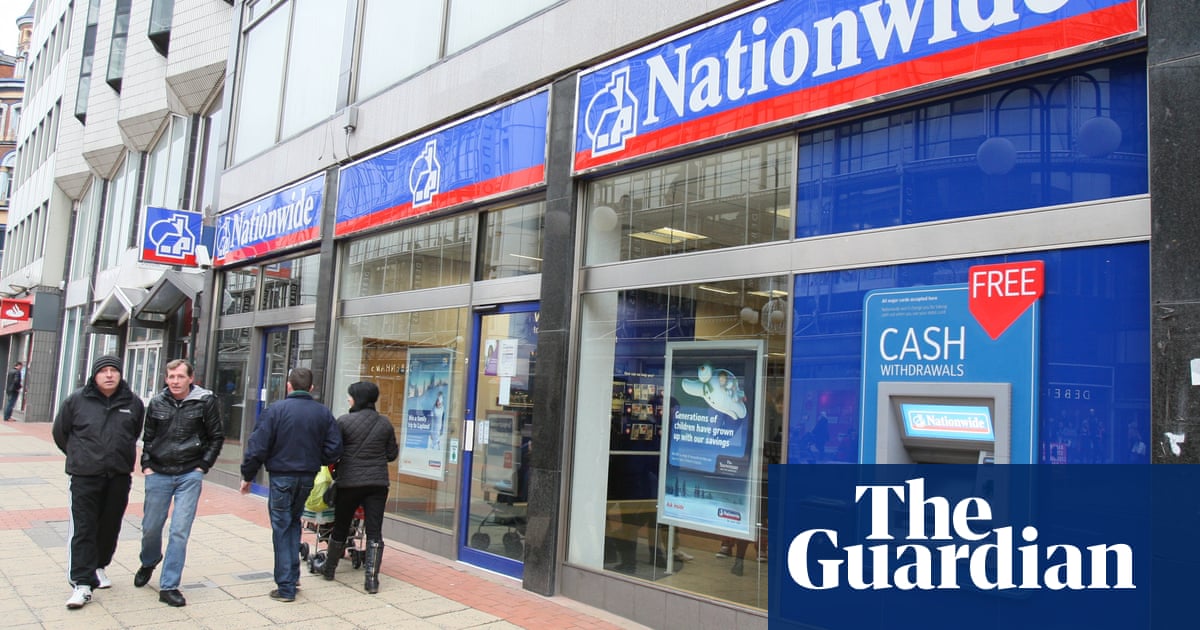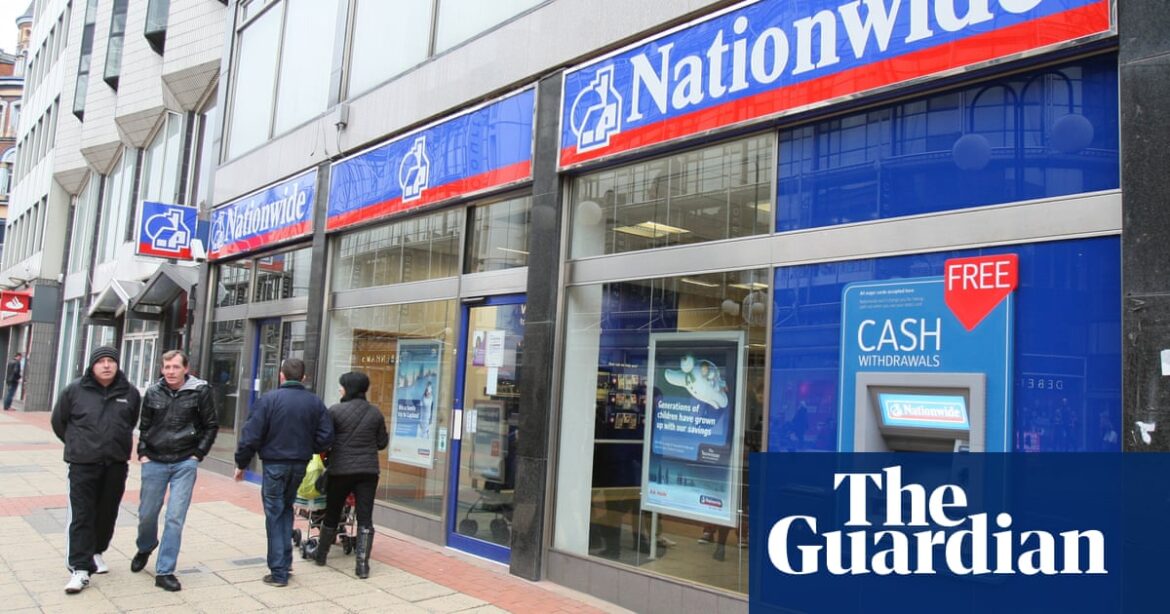
The Nationwide building society has entered into an agreement to purchase Virgin Money, a high-street competitor, for approximately £3bn. This is the biggest banking deal in the UK since the financial crisis of 2008.
The two creditors have come to an initial understanding on the main conditions of the acquisition, which – if given the go-ahead – would limit competition with the top four banks. This would result in a merger of the two entities, with a total value of £366 billion in assets, over 700 locations, and a customer base of more than 23 million.
Purchasing Virgin Money would further establish Nationwide as the second-largest provider of mortgages, following Lloyds Banking Group. This is according to data collected by industry organization UK Finance on current home loans.
This is the most recent in a series of agreements involving Virgin Money. This company saw a significant increase in size after purchasing the struggling bank Northern Rock from the government for £747m in 2011. This takeover target had been nationalised during the financial crisis almost four years prior.
After seven years, Virgin Money was once again a major player in a large banking agreement in the UK, as it was acquired by Clydesdale and Yorkshire Banking Group for a total of £1.7bn in 2018.
However, CYBG made a significant payment to retain the Virgin Money brand, whereas Nationwide’s intentions entail the elimination of Virgin Money’s name from the high street within a span of six years.
Replacing the brand could potentially result in significant long-term savings for Nationwide, a company headed by former TSB CEO Debbie Crosbie. In the past year, Virgin Money paid £17 million to use the Virgin name, which is fully owned by Sir Richard Branson’s Virgin Group.
Branson is expected to reap about £414m from the deal because of his remaining 14.5% stake in Virgin Money, which he founded in 1995. The billionaire, who wore a pinstripe suit and bowler hat at the bank’s launch, said at the time the venture was “a chance to change a stagnant industry and provide customers with much-needed competition”.
Jayne-Anne Gadhia, the previous CEO of Virgin Money, expressed support for the potential agreement. Gadhia, who remains a shareholder, stated that while it would be regrettable to see the brand go, she believes the potential acquisition would speed up advantages for Virgin Money patrons.
She praised Crosbie for her involvement in facilitating one of the United Kingdom’s biggest deals in recent times. “It’s wonderful to witness a noteworthy deal being spearheaded by a woman in a prominent position within the financial sector.”
The suggested agreement for £2.9bn gives shareholders of Virgin Money 220p per share, which is a 38% increase from the lender’s Wednesday share price.
The announcement caused a significant increase in Virgin Money’s stock, jumping 34% to 212p on Thursday, just slightly below the proposed offer price.
The chairman of the company, David Bennett, stated: “The Virgin Money board is happy that Nationwide acknowledges the significant assets and potential within our company, and the potential acquisition will provide appealing value for our shareholders.”
Nationwide has committed to its “branch promise” and will continue to keep all of its current branches open until at least 2026. Despite this, any closures that have already been planned by Virgin Money (which has 91 sites) will still proceed as scheduled.
Nationwide has approximately 18,000 employees and stated that they do not have any immediate intentions to make significant alterations to the workforce of 7,300 individuals at Virgin Money. However, they did not provide any additional information regarding plans for future job reductions, which are often implemented during mergers.
Ignore the newsletter advertisement.
after newsletter promotion
The building society located in Swindon has reduced their staff by approximately 800 employees in the last year. They have stated that they will protect the current contractual and legal rights of Virgin Money employees, including their pension plans and policies for redundancy.
Nationwide’s chairman, Kevin Parry, stated that the proposed agreement could potentially benefit the building society by providing more affordable options for customers and allowing for one-time payments to be made.
In 1884, the Southern Co-operative Permanent building society was established as a mutual. It was later renamed Nationwide in 1970 and has since expanded to include over 600 branches.
According to analysts, it is uncommon for a mutually-owned company to acquire a publicly listed bank. However, Nationwide’s unexpected action demonstrates their desire to remain competitive. Susannah Streeter, the head of money and markets at Hargreaves Lansdown, stated, “Nationwide is clearly determined to move forward and secure the expertise and resources necessary to attract future customers who expect advanced financial services.”
By 4 April, Nationwide must submit an official proposal, which will then need to be presented to shareholders of Virgin Money. On Thursday, Branson’s Virgin Group, the majority shareholder, affirmed their readiness to consent to the agreement.
Even though Nationwide is legally a mutual organization, it will not need to obtain consent from its members.
The recent announcement follows soon after Barclays’ declaration of purchasing the majority of Tesco Bank for £700m. Additionally, Coventry building society is currently in discussions to potentially acquire the Co-operative Bank from its hedge-fund owners for an undisclosed amount.
Source: theguardian.com



